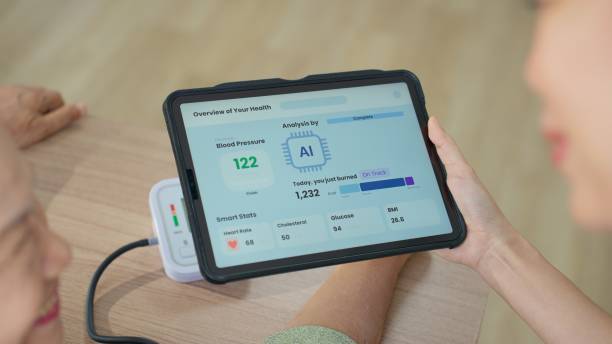
Artificial Intelligence (AI) is no longer a futuristic concept confined to science fiction. It has become an integral part of our daily lives, transforming industries, redefining the workforce, and reshaping how we interact with technology. As we approach the next decade, AI is poised to accelerate even further. This article explores the high-level trends, potential breakthroughs, ethical challenges, and societal impacts we can expect from AI by the year 2030.
1. AI Becomes Ubiquitous and Invisible
By 2030, AI will likely be embedded in nearly every device, platform, and service we use. Similar to how electricity powers everything today, AI will function as an invisible layer that augments everything from smartphones and smart homes to industrial machinery and financial systems.
Natural language processing (NLP) will evolve to understand context, emotion, and nuance far better, enabling seamless human-machine communication. Voice assistants will transition from basic task-performers to true digital companions, capable of understanding complex requests, offering proactive suggestions, and adapting to individual user behavior.
2. AI-Driven Automation Redefines the Workforce
Automation will go beyond physical labor and enter knowledge-based professions. AI will assist or even replace tasks in legal research, journalism, finance, software engineering, and medical diagnostics. This transformation will likely lead to job displacement but also create new categories of work that require human-AI collaboration.
Reskilling will be crucial. By 2030, governments and private sectors will need to invest heavily in education programs that teach AI literacy, critical thinking, and adaptability. Human roles will shift toward creative, strategic, and interpersonal tasks where AI cannot easily replicate human intuition.

3. General AI: Closer But Still Out of Reach
Artificial General Intelligence (AGI) remains the holy grail of AI research. While current AI systems excel in narrow tasks, AGI aims for machines with human-level cognitive abilities. Despite significant research, achieving AGI by 2030 is unlikely, but meaningful steps toward more generalized and adaptive AI will occur.
Advancements in reinforcement learning, transfer learning, and neuromorphic computing may lead to systems that can handle multiple domains, learn from fewer examples, and adapt to new situations without retraining.
4. AI in Healthcare: From Diagnosis to Personalized Treatment
AI will revolutionize healthcare with earlier diagnoses, more accurate predictions, and personalized treatment plans. Algorithms trained on large datasets of genomic, lifestyle, and clinical data will help doctors identify risk factors for diseases before symptoms appear.
Robotic surgery, remote monitoring, and AI-driven drug discovery will become more prevalent. Moreover, wearable devices powered by AI will continuously analyze health metrics, offering real-time feedback and alerting users and professionals to anomalies.
5. Smarter Cities and Sustainable Living
Smart cities powered by AI will emerge globally, using real-time data to optimize traffic flow, reduce energy consumption, and improve waste management. AI will help manage electricity grids more efficiently, integrate renewable energy sources, and predict usage patterns.
In transportation, AI will underpin autonomous vehicle systems, reducing accidents and enhancing urban mobility. Public transport will become more adaptive and demand-responsive, reducing wait times and fuel consumption.
6. Ethical AI: Regulation and Responsible Innovation
With increased AI integration comes the need for robust ethical frameworks. Issues like algorithmic bias, data privacy, and the misuse of AI for surveillance or manipulation will take center stage. By 2030, we can expect international efforts to create standardized AI governance models.
Ethical AI design will become a competitive differentiator. Companies will need to demonstrate transparency, explainability, and fairness in their AI models. Emerging fields like “AI for social good” will see growth, focusing on climate action, poverty reduction, and equitable resource distribution.
7. AI-Powered Creativity and Human Expression
Generative AI will redefine creativity, enabling machines to compose music, create visual art, write poetry, and even generate video content. Human creators will collaborate with AI as co-authors or co-artists, pushing the boundaries of what’s possible in media and entertainment.
This democratization of creativity will empower individuals with limited resources to produce professional-grade content. However, it will also raise questions about intellectual property, authenticity, and artistic value.
8. AI and Global Inequality
While AI promises great benefits, it also risks exacerbating global inequalities. Countries and companies with access to advanced AI technologies may widen the gap between the digital haves and have-nots.
To address this, global partnerships and knowledge-sharing initiatives will be critical. Ensuring that developing nations have access to AI infrastructure, talent development programs, and ethical guidelines will help promote inclusive growth.
9. AI in Education and Lifelong Learning
Education will be one of the sectors most transformed by AI. Adaptive learning platforms will tailor lessons to each student’s pace, style, and preferences. AI tutors will provide on-demand assistance, while educators will gain insights into students’ progress and challenges in real time.
Lifelong learning will become the norm. With rapid technological change, people will need to continuously upskill. AI can help by curating personalized learning paths and predicting future skill demands based on market trends.
10. Preparing for the AI Future: A Collective Responsibility
The road to 2030 presents both incredible promise and complex challenges. Governments, businesses, educators, and individuals must work together to harness AI responsibly. Policies must balance innovation with regulation, and systems must prioritize transparency, fairness, and accountability.
Public awareness and engagement will be vital. Society must not view AI as a black box but as a tool we shape collectively. The decisions made today will determine whether AI becomes a force for progress or division.
Conclusion
The next decade of AI will be characterized by rapid integration, disruptive innovation, and growing pains. From healthcare to education, from creativity to ethics, AI will touch every corner of human life. By preparing thoughtfully and collaboratively, we can guide AI’s development to serve humanity’s best interests.
AI is not just a tool of the future. It is the defining force of our time. The question is not whether AI will shape the world by 2030—but how we choose to shape AI.




